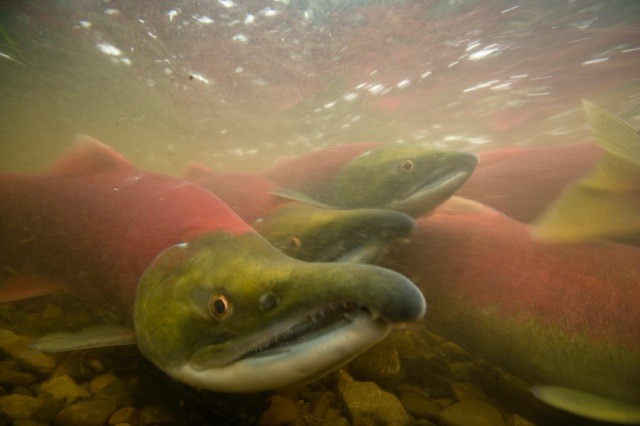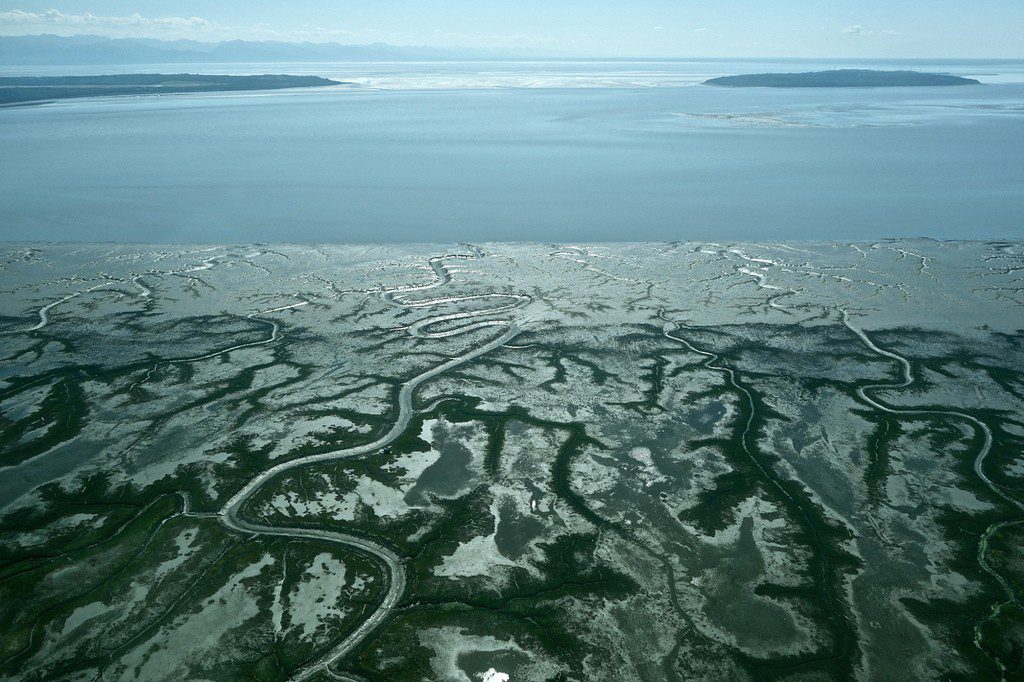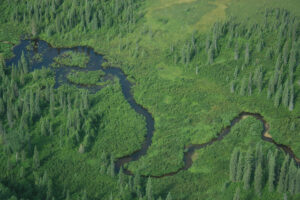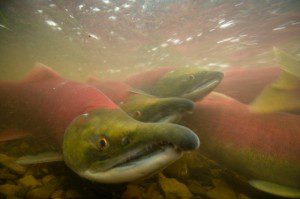
Final Hearing on Water for Salmon

Chuitna River drains into upper Cook Inlet where salmon populations are dropping. Photo courtesy of Alaskans First.
For over two decades, Trustees for Alaska has fought to protect the Chuitna River from coal mining. In 1992, Trustees won a case in the Alaska Supreme Court stopping a proposed coal mine that would have destroyed miles of salmon habitat. As a result, the mining company walked away. In 2006, PacRim Coal LLC renewed efforts to open a large-scale coal strip mine in the Chuitna River watershed. They plan to completely dig up 14 miles of river, destroying important salmon habitat and forever changing the ecosystem. Trustees has been hard at work to protect the area’s important salmon habitat and the way of life enjoyed by the residents of Beluga, a small community adjacent to the mine site.
On behalf of the Chuitna Citizens Coalition and Cook Inletkeeper, starting in 2009, Trustees took several proactive steps to protect the Chuitna. We petitioned to designate the Chuitna River and tributaries under lease to PacRim unsuitable for coal mining because the best available science shows that it simply is not possible to rebuild salmon streams once they are destroyed. We also asked the Alaska Department of Fish and Game to improve habitat regulations for salmon that would protect the Chuitna River. And we filed applications for water reservations that would keep water in the river for salmon. The State refused to designate the area as unsuitable for coal mining and declined to strengthen fish habitat regulations.

Aerial photo of Middle Creek, a tributary of the Chuitna River where PacRim hopes to remove all the water to extract coal. Photo courtesy of Alaskans First.
The Department of Natural Resources (DNR) also refused to consider the water rights applications, and ignored them. Trustees sought a court order to enforce Chuitna Citizens Coalition’s rights. After Trustees prevailed in two lawsuits, DNR finally began the process of deciding whether to grant the water rights to keep the water in the river for fish. We submitted extensive documentation and scientific support to demonstrate why this water is necessary to protect Chuitna’s salmon—and is in the public interest.
DNR is holding a hearing on August 21, 2015, in Anchorage. This is the last step before deciding whether to grant the application. DNR will hear testimony from Trustees for Alaska on behalf of Chuitna Citizens Coalition. Cook Inletkeeper and Alaska Center for the Environment will also be presenting testimony in favor of the water rights. Judy Heilman, President of Chuitna Citizens Coalition, applauded the public process for her organizations’ applications as a chance to tell the State that “Alaskans want salmon, not coal.”
This is the first time DNR has ever considered applications from private citizens to keep water in streams to protect salmon. Although citizens have had the ability to apply for these water rights for many years, DNR has never acted on the applications. Because of Trustees’ success, there is now a court order requiring DNR to process these applications.
PacRim Coal, who submitted competing water rights applications after the court ordered DNR to process these applications, plans to remove the entire streambed, bank-to-bank, down to 350 feet, permanently destroying the salmon habitat. PacRim’s predecessor walked away from this poorly designed and ill-conceived project. But PacRim continues to move forward and has begun submitting permit applications. Federal and state agencies have already devoted nine years and unknown amounts of state and federal budgets to evaluating this destructive project.
PacRim claims they can rebuild the stream and restore salmon populations when mining ends, 30 years hence. Scientists reviewing the project have concluded that PacRim’s promises are simply impossible. Salmon, a sustainable resource, should not be traded for a finite amount of coal.
The State has a duty to protect fish, wildlife, and waters for use by all Alaskans. The threat of the largest coal strip mine in Alaska has resulted in more than 30 years of uncertainty for the Chuitna. At the August 21st hearing on Chuitna Citizens Coalition’s water reservations, the State has a unique opportunity to make the clear choice to protect fish habitat now so that future generations of Alaskans can enjoy healthy and vibrant salmon runs in the Chuitna watershed.
Read other stories on Trustees work to protect the Chuitna River.
Read stories in the press about the hearing held August 21, 2015:



